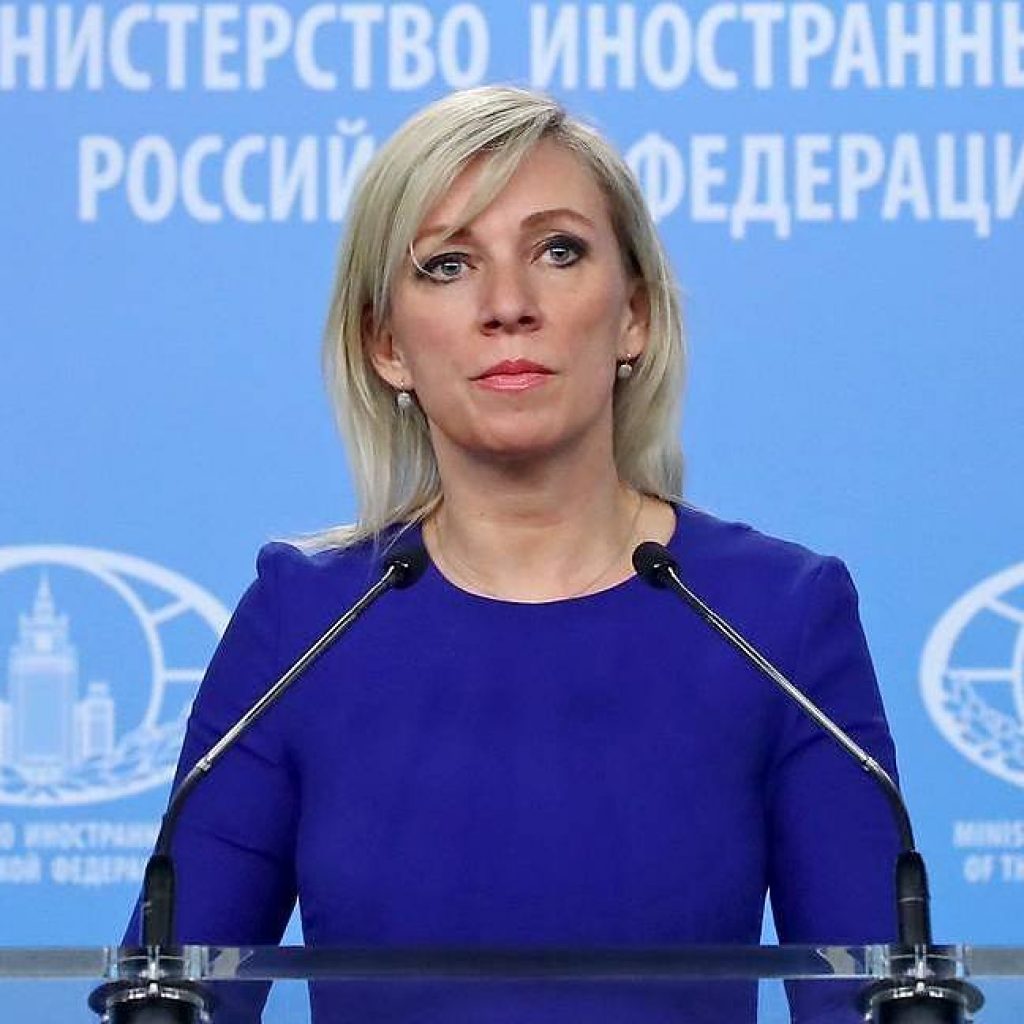RA’s Daily Russia News Blast – April 23, 2020

Today in Russia: Rosneft “on the brink” of closing its trading arm; Russian oil sold at lowest level since 1998 – what does it mean for Russia?; Vedomosti publishes editorial condemning its own editor, Kremlin insists it did not have a hand in Vedomosti changes; New COVID-19 infections decrease for third straight day; COVID-19 patients have data leaked, suffer from attacks; Moldovan Parliament ratifies EUR 200 mil. loan from Russia; State Duma proposes to lift blockage of Telegram; Russia calls US Senate intel report “baseless”; MFA spokeswoman says US military has COVID-19 cases in Syria.
Rosneft is “on the brink” of closing its Switzerland-based trading arm, after US growing sanctions against Venezuela raised the specter of the Russia oil major falling afoul of US sanctions laws. Last month, Rosneft sold its Venezuelan operations to a Russian state-owned company, and in February the US imposed sanctions on Rosneft’s trading arm over its dealings with Venezuela.
The plunge of West Texas Intermediate (WTI) crude oil pricing grabbed global headlines and brought with it a sharp drop in Brent crude, the international benchmark. But what does this mean for Russia, which produces Urals, the Russian oil benchmark tied to Brent pricing? Vedomosti reported that Urals oil was sold in the Mediterranean for just $8.48 per barrel [in Russian], the lowest rate since 1998. The Moscow Times writes that,
When Urals falls below $25 a barrel, Russia’s Central Bank accelerates its sales of foreign currencies held in Russia’s reserves — the idea being that buying up rubles will counteract the negative impact which low oil prices can have on Russia’s economy and which pushed the Russian economy into recession in 2015-16 as a result of the oil price crash. Last week, sales were running at around $200 million a day. The Russian government has said it has enough in its $125 billion sovereign wealth fund to cover six years of low oil prices, although some analysts point to larger headaches and structural weaknesses in Russia’s oil industry and the wider economy should oil remain at its current levels for an extended period of time.
Vedomosti, the respected Russian business outlet has come under fire with new ownership and a meddling editor. Today, the paper published an editorial condemning its own editor [original editorial, in Russian]. The editorial comes a day after reports that Vedomosti’s editor Andrey Shmarov banned negative reporting about Russia’s constitutional amendments and banned reporting of polls from Russia’s respected Levada Center. The editorial read, “With this editorial, we would like to confirm that we cherish the values upon which Vedomosti’s reputation is built and we intend to continue defending them. If Vedomosti loses its reputation, it will become just another subservient and controlled media outlet driven not by readers’ need for verified news and high-quality analysis but by the interests and ambitions of its official and hidden owners. There are already enough media outlets like this in Russia.”
Meanwhile, Kremlin spokesman Dmitry Peskov insisted [in Russian] that the Kremlin was not involved in the clampdown at Vedomosti.
Russia reported its third straight day of a declining COVID-19 infection rate, adding 4,774 new cases to bring the total reported cases to 62,773. Yesterday Kremlin Spokesman Dmitry Peskov said that the situation would likely peak in mid-May, and today Moscow Regional Governor Andrei Vorobyov said that the situation will likely worsen [in Russian] in May despite new cases declining. He added, “But you all perfectly understand that life is more complicated. In addition to those identified, there is pneumonia, there are various symptoms of acute respiratory viral infections … Our task is to understand that, perhaps, an even more difficult period awaits us next month. And we must go through this difficult period.”
Moscow Mayor Sergei Sobyanin, for his part, said that it is impossible to predict [in Russian] when the peak of COVID-19 in the capital will be. He said that “talking about reaching a plateau or about positive dynamics is impossible” and that Moscow has not even reached “the middle of the path” to full recovery.
COVID-19 patients are having their personal information leaked by some hospitals, doctors, and police. This had led to them and their families facing doxxing attacks and other harassment, according to a Meduza report.
The Moldovan Parliament ratified [in Russian] a EUR 200 million loan from Russia. The money will go towards plugging holes in the country’s budget and on infrastructure improvements in the capital, Chisinau. The vote had the support of MPs from the President Igor Dodon’s Party of Socialists but was opposed by the pro-Western bloc of parliament.
The State Duma has proposed [in Russian] that the ban on Telegram, a secure messaging platform which became a widespread source of news for Russians, be lifted. Currently the platform is banned but a wide range of free workarounds exist. Making matters more awkward, many official government sources are using Telegram to inform the public about COVID-19. The sponsors of the bill in the Duma said that unsuccessful attempts to block Telegram “damage the prestige of state power.”
Russia called the latest Senate Intelligence Committee report on Russian interference in the 2016 election “baseless.” Foreign Ministry Spokeswoman Maria Zakharova added, “Obviously, these paranoid insinuations, which aren’t supported by a single fact, are a product of domestic politics in the U.S.”
Interfax reported that the Russian Foreign Ministry “notes” reports that the US Military has cases of COVID-19 among its forces in Syria. Spokeswoman Maria Zakharova added, “We receive reports of explosive coronavirus infection spread among the US servicemen [in Syria] and of these facts being kept mum on [sic].” She also said US forces were in Syria illegally.
PHOTO: Russian Foreign Ministry Spokeswoman Maria Zakharova speaks to reporters. (Anton Novoderezhkin/TASS)











